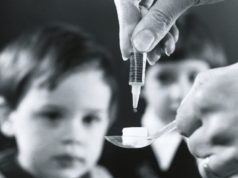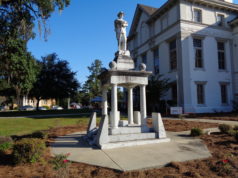There are three simple things President Barack Obama can do to reduce the sort of confrontations between cops and young black men that occasionally get the latter killed and much more often get them arrested.
First, Obama should use the executive power granted him by Congress under the Controlled Substances Act and elsewhere in federal law to delist marijuana as a controlled substance.
The act gives the president (or strictly speaking the attorney general and the Secretary of Health and Human Services, who serve at the pleasure of the president) the power to add or remove drugs from the list of drugs regulated by the act, or to move them among the five regulatory categories (or “Schedules”) under which drugs covered by the act are listed.
Marijuana is currently listed as a Schedule One Controlled Substance, the strictest category. De-listing marijuana altogether would put marijuana in essentially the same category as alcohol and tobacco, which are not covered by the act (and which are much more dangerous than pot).
Second, Obama should announce that he will veto any attempt by the incoming Congress to nullify the marijuana legalization initiative approved by 70 percent of District of Columbia voters in November.
The measure, Initiative 71, provides that adults can possess up to two ounces of marijuana for personal use and cultivate up to six plants. Sales are prohibited. Under Washington, D.C.’s home rule charter, Congress can nullify any ordinance the District’s city council or voters adopt within 30 days of its passage. Several Republican House members have already announced they will introduce a nullification resolution.
Third, he should throw the full weight of his administration behind legislation like the bill sponsored by Jared Polis in the last Congress that would de-federalize marijuana policy and leave it to the states.
Together, these three acts would constitute a decisive step toward dismantling the most de facto racist institution remaining in American life — the war on drugs and the war on marijuana in particular.
A June 2013 report prepared by the American Civil Liberties Union (The War on Marijuana in Black and White) documented the overwhelmingly racist nature of the war on marijuana and how it has entangled millions of black and Hispanic men in the criminal justice system.
Among other things, it found that, nationwide, blacks and whites use marijuana at roughly the same rate, but blacks are 3.73 times more likely to be arrested for marijuana possession than whites. In states with the worst disparities, blacks were on average over six times more likely than whites to be arrested for possession. In the worst offending counties, blacks were “over 10, 15, or even 30 times more likely to be arrested than white residents in the same county.”
In Washington, D.C., a city whose population is roughly 50 percent black, 91 percent of the arrests for marijuana possession were of blacks, the report found. A black Washingtonian is eight times more likely to be arrested for marijuana possession than a white one.
It doesn’t take a genius to grasp the implications of these racially biased arrest rates.
The ACLU points out that these include limited employment opportunities, housing opportunities and adverse child custody determinations — all of which have contributed to the destruction of the black family.
Moreover, “the targeted enforcement of marijuana laws against people of color, and the unsettling, if not humiliating, experience such enforcement entails, creates community mistrust of the police, reduces police-community cooperation, and damages public safety.” You think?
Marijuana may not be a gateway drug, as pot prohibitionists claim, but a marijuana arrest is often a gateway crime, one that introduces an otherwise honest person to both the criminal underworld and the criminal justice system — and to the sort of encounters with the cops that sometimes turn fatal.
The modern incarnation of the drug war began with the Nixon administration. It was launched deliberately to target Nixon’s enemies, including especially blacks and the young. Confirmation of this comes from no less a source than Nixon’s White House counsel (and Watergate conspirator) John Erlichman, a member of Nixon’s inner circle and one of his most influential advisers.
During an interview with investigative author Dan Baum, he unburdened himself of the following admission, which was included in Baum’s 1995 book Smoke and Mirrors: The War on Drugs and the Politics of Failure:
“Look, we understood we couldn’t make it illegal to be young or poor or black in the United States, but we could criminalize their common pleasure. We understood that drugs were not the health problem we were making them out to be, but it was such a perfect issue for the Nixon White House that we couldn’t resist it.”
As a tool of racist repression, the War on Drugs succeeded beyond its creator’s wildest dreams. Arguably, it has socially and culturally criminalized a generation of black Americans. It is the real “root cause” of many of the social pathologies of black America.
Black America’s toxic relations with the police will not improve until it is ended.
Obama does not have the power to end the drug war unilaterally. But he does have the power — explicitly given to him by Congress and the Constitution — to de-escalate it dramatically — and his failure to do so up to now is pretty contemptible considering the faith black America and young America placed in him.
Respond: [email protected]
This opinion column does not necessarily reflect the views of Boulder Weekly.














